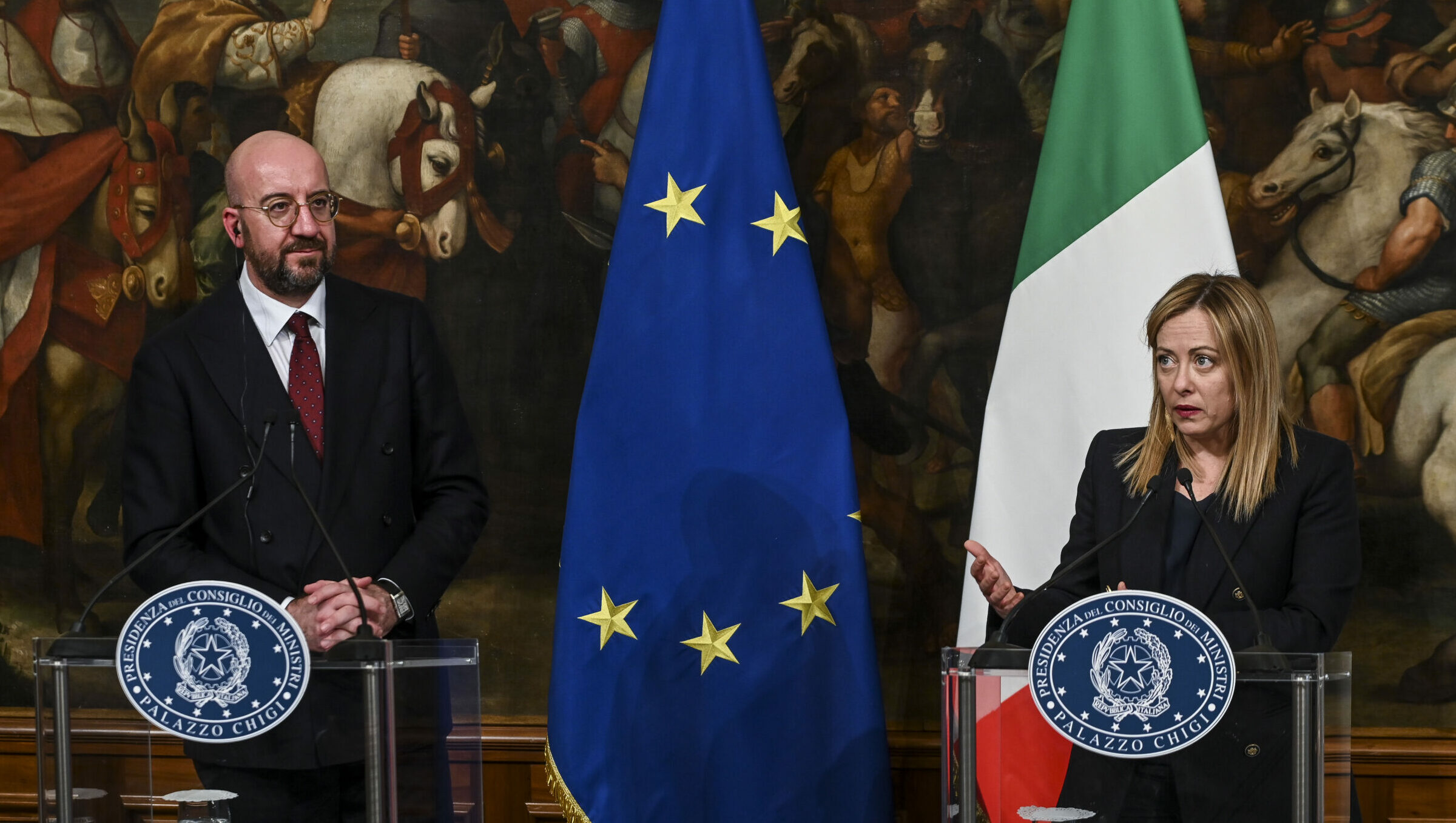EU state aid, here are for and against the easing of the rules

During the meeting with Michel, Giorgia Meloni rejected the easing of European rules on state aid in response to US subsidies, instead asking for a new common fund. But Germany is against it, and it is not alone. All the details
According to Prime Minister Giorgia Meloni, who yesterday met in Rome with the President of the European Council Charles Michel, "Europe must protect its businesses and must do so with courage". But he must have "caution on the relaxation of state aid rules".
The Italian position, he added , envisages "above all flexibility on existing funds".
THE RISKS OF THE INFLATION REDUCTION ACT, IN A SHORT
The statements concern the European Union's response to the Inflation Reduction Act , the great US law on subsidies to "green" manufacturing which risks depriving the Old Continent of a solid industrial base in sectors crucial for the ecological transition: electric vehicles, batteries , wind turbines, solar panels and green hydrogen, for example.
Attracted by the favorable environment – there are not only the incentives of the Inflation Reduction Act, but also much lower energy prices -, several European companies such as Northvolt, Iberdrola or Enel are effectively prioritizing investments in the United States.
THE RESPONSE OF THE EUROPEAN UNION
The European Commission is working on a response plan to the Inflation Reduction Act, called the Green Deal Industrial Plan: it will be presented tomorrow in view of the Special Council on 9 and 10 February.
The first steps of the initiative, already presented by President Ursula von der Leyen at the Davos Economic Forum, are two: simplifications of authorizations for projects related to "clean technologies" and easing of EU legislation on state aid to companies operating in ecological transition chains.
Subsequently, perhaps by the summer, a European sovereign wealth fund will also be set up, financed with a common debt, but whose dimensions are still unknown.
THE CRITICISM OF MELONI
The Italian government does not like the proposal to relax the European rules on state aid. In fact, during the press conference with Michel, Meloni said that "cautiousness is needed on the relaxation of the rules on state aid, the goal is to support businesses without risking weakening the single market".
For the president, what is needed is “the courage to create instruments such as a European sovereign wealth fund. It is a subject on which it will not be easy to agree immediately to twenty-seven", he acknowledged, "but for us it is important that we go in that direction and say that we intend to go in that direction".
WHY IS ITALY AGAINST THE RELEASE OF EUROPEAN STATE AID RULES?
According to the Meloni government – the position of the president is the same as that of Economy Minister Giancarlo Giorgetti and that of Enterprise Adolfo Urso -, the simplification of Community legislation on state aid risks creating imbalances in competitiveness within the single European market, because member states with greater economic resources, or with large public expenditure margins, will be able to support their companies with more money than others can.
In other words, easing rules on public subsidies would favor Germany and France and penalize Italy. Of the 672 billion euros in state aid that the Commission approved in 2022, 77 percent came from just two countries: 53 percent from Germany and 24 percent from France. Italy is worth 7 percent.
WHO WANTS THE EUROPEAN SOVEREIGN FUND AND WHO DON'T
To safeguard the competitiveness of its companies with respect to German and French ones, Italy is instead pushing for a European sovereign wealth fund. In this regard, President Michel declared that the single market is the "trump card" of the European Union, "a treasure built with patience" and a "shared common economic strength" which must be defended.
Even the Commissioner for Economic Affairs Paolo Gentiloni said that the Commission wants to respond to the Inflation Reduction Act with "common instruments" such as "a new European sovereign wealth fund", in order to protect the integrity of the single market.
The sovereign fund could make it possible to resolve the problem of the disparity of resources among the various members of the Union, but it would provide for the issuance of new European debt. It is an unwelcome possibility for Germany, the largest economy in the European Union: the German Finance Minister, the liberal Christian Lindner, said in this regard that "there is no need for new financing instruments on the part of the EU and of new common debts”.
Seven other member countries – Austria, Denmark, Estonia, Finland, Ireland, the Czech Republic and Slovakia – have sent a letter to the European Commission expressing their opposition both to the expansion of state subsidies and to the creation of more common debt: instead they ask to use the remaining funds from the NextGenerationEU and RePowerEU programmes.
Finally, more than the "war on subsidies" with the United States, the seven governments are asking Brussels to reach a negotiated solution with Washington through greater trade alignment.
This is a machine translation from Italian language of a post published on Start Magazine at the URL https://www.startmag.it/mondo/aiuti-stato-unione-europea-favorevoli-contrari/ on Tue, 31 Jan 2023 09:51:58 +0000.
